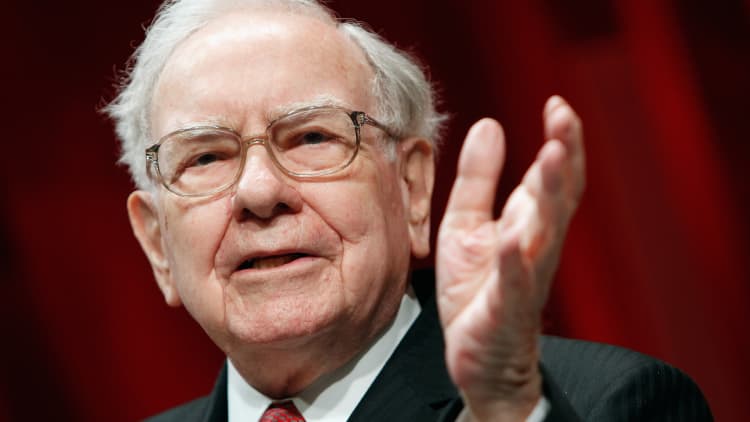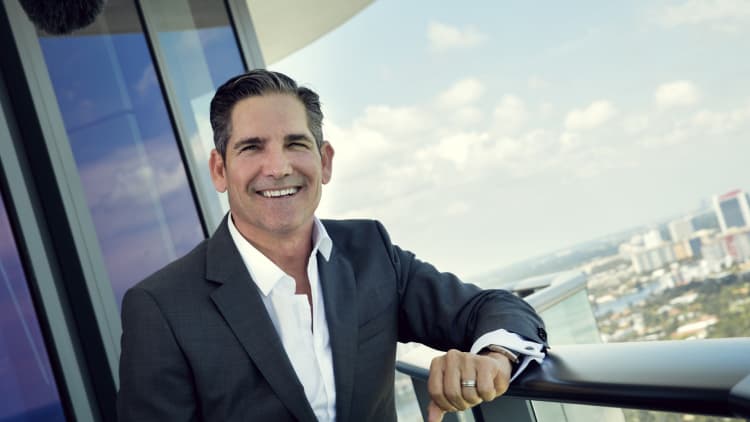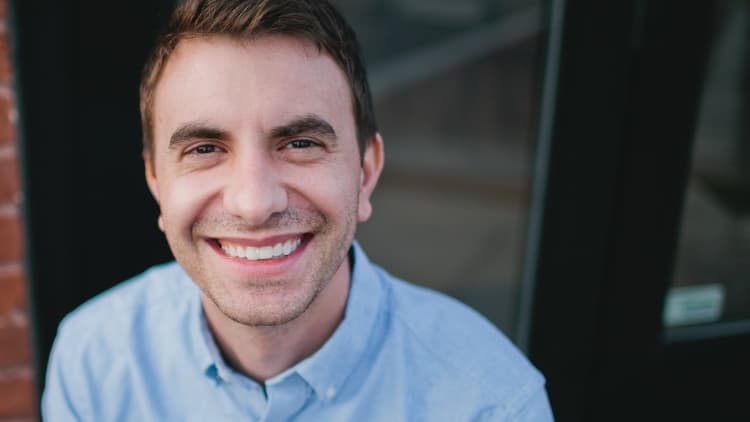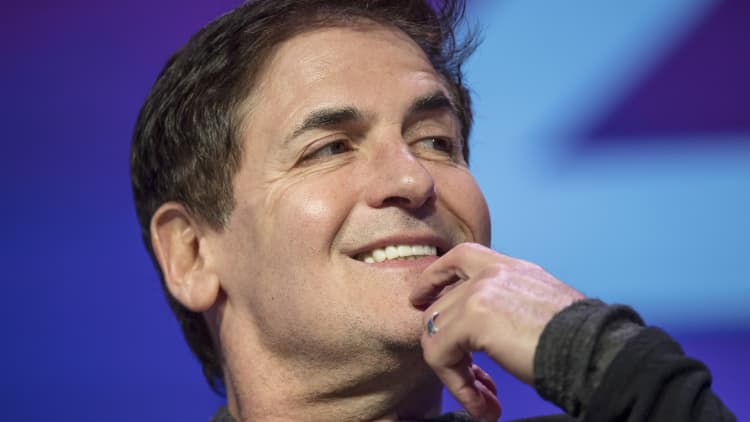It can feel like there's an overwhelming amount of money advice to sort through. To help you separate out the signal from the noise, CNBC Make It rounded up eight of the best pieces of advice we heard about money this year.
Here are some of the smartest things self-made millionaires and billionaires had to say about saving, investing, earning and growing your wealth.
Suze Orman: Find joy in saving money

The key to saving money is to find the same kind of pleasure you get from spending when you save, the personal finance expert told CNBC Make It. Saving money should never feel like "a downer," Orman said. It should be satisfying. You should even like doing it.
The question shouldn't be, "When can you start enjoying your money that you saved?" she continued. "My question back to you is, 'When do you start enjoying the process of saving?' If you did that, you'll find you don't care about spending money anymore."
Warren Buffett: The best investment you make is in yourself

"Ultimately, there's one investment that supersedes all others: Invest in yourself," the self-made billionaire said in an interview with Forbes. "Nobody can take away what you've got in yourself, and everybody has potential they haven't used yet."
Kyle Taylor: Use the '50-30-20 percent rule'

Kyle Taylor of The Penny Hoarder, who went from cash-strapped to self-made millionaire in a matter of years, told CNBC Make It that one simple formula has helped him save, particularly when dealing with windfalls like a cash gift or bonus.
It's called the "50-30-20 percent rule." Fifty percent of the money goes straight to the bank — into your checking account, emergency fund or a long-term savings account — while 30 percent goes towards funding your lifestyle, and 20 percent goes towards fun.
"Having those percentages set up ahead of time will give you the freedom and the control to make sure you're making a wise financial decision," Taylor said.
Spike Lee: Don't be afraid to use other people's money
"I've got no problem asking people for money," the acclaimed film director told Wealthsimple earlier this year. "Because I believe. I believe in my talents, my storytelling abilities, and also the people I surround myself with on the projects that I make."
Lee is in good company. As author and self-made millionaire Steve Siebold found after interviewing more than 1,000 wealthy people for his book, "How Rich People Think," those with a lot generally aren't afraid to fund their future using other people's funds.
"Rich people know not being solvent enough to personally afford something is not relevant," Siebold writes. "The real question is, 'Is this worth buying, investing in, or pursuing?' If so, the wealthy know money is always available because rich people are always looking for great investments and superior performers to make those investments profitable."
Mark Cuban: Buy in bulk and on sale
"It's so hard to make a return on regular investments that … you're better off buying two years' worth of toothpaste when it's on 50 percent discount," the self-made billionaire said in a 2017 interview with Vanity Fair. "There's an immediate return on your money."
Don't stop with toothpaste, either. This strategy applies to "any resusables or consumables that you have to have," said Cuban. "When they're on a huge sale on Amazon, buy them, because chances are, their prices are going to go up. That's a real savings that you get to put in your pocket."
Grant Cardone: Develop multiple connected streams of income

"You won't get rich without multiple flows of income," said self-made millionaire Grant Cardone, who was deep in debt before reaching seven figures. "That starts with the income you currently have. Increase that income and start adding multiple flows.
"You want what are called symbiotic flows. Do not just add disconnected flows. Instead, find other ways you can add income to the job you already have. My video guy does advertising for me — and after proving himself, he started making advertisements for those connected to me. He didn't start a doughnut shop."
Chris Reining: To save big, start small

According to Chris Reining, who built a $1 million portfolio by age 35 and retired two years later, the key to saving big is to start small.
"I know there are some people out there that say you shouldn't worry about the $5 latte, but the more I think about it, cutting out the $5 latte was a good place to start," Reining told CNBC Make It. "Because if you try to downsize your house, get rid of all yours cars and make all of these drastic changes, it's so overwhelming and you're not going to do any of it."
Ultimately, he said, "the small changes will lead you to be able to make the big changes."
Grant Sabatier: Don't forget, money isn't everything

"Money is not everything, and it's not worth sacrificing your health, family, friends or other experiences for it," said Sabatier, who went from broke to seven figures in five years.
"I have lost a few friends and strained other relationships because I've spent too much time staying late in the office or hustling on the weekends. Even though I truly believe that having money is freedom, money is really just a tool to make experiences in life possible."
Rather than focusing solely on how to make more money, set lifestyle goals, said the self-made millionaire. Ask yourself questions like: What do you want to do with your money? How many hours a week do you want to work? How much do you want to travel?
After all, "making and saving more money is only useful if you have something in mind you want to use it for."
Like this story? Like CNBC Make It on Facebook!
Don't miss: Ex-Wall Street titan Sallie Krawcheck shares the worst money advice she's ever heard



